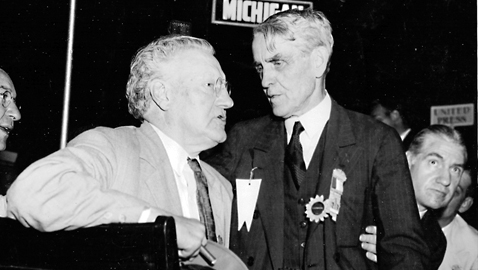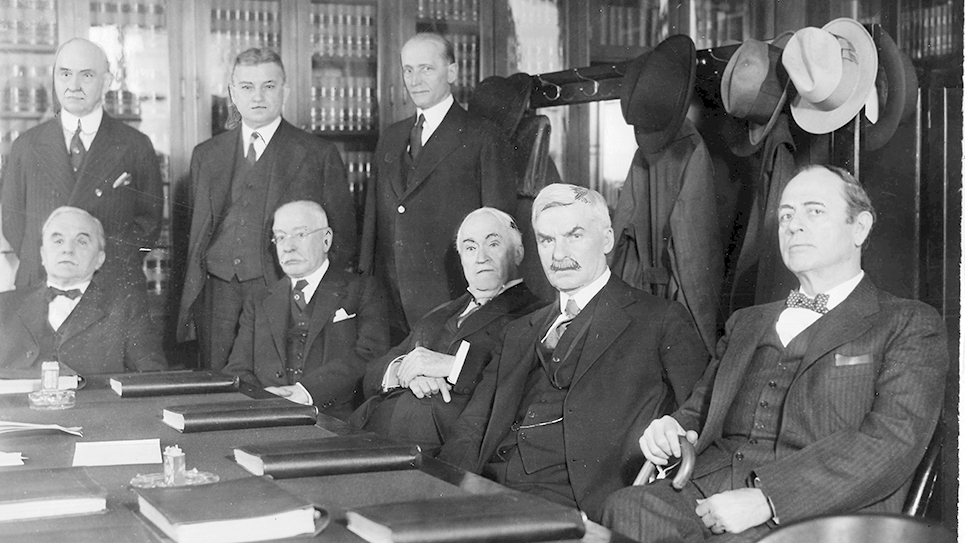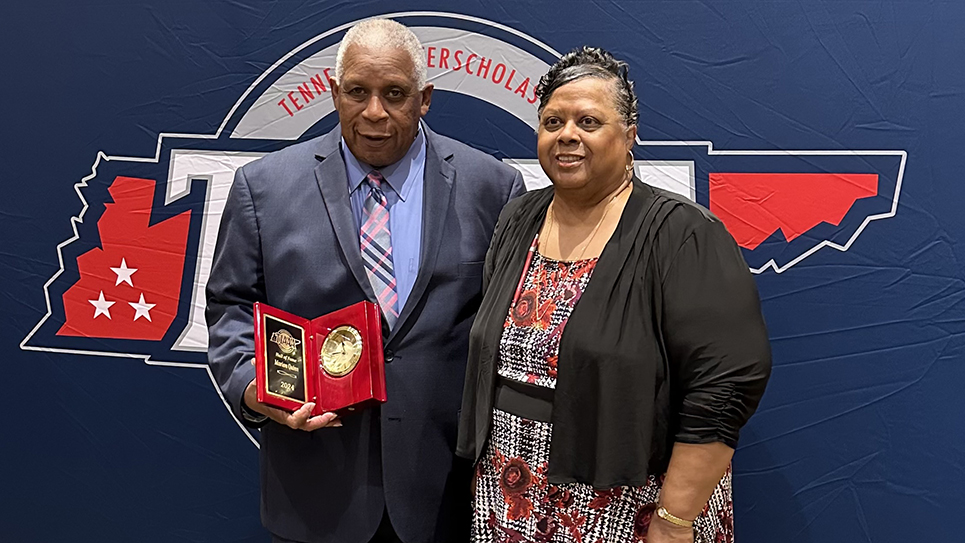“If you trust the people, they will trust you.”
Arthur Capper
Before there was Bob Dole, there was Arthur Capper. Capper was the most successful politician in Kansas for decades. Of the many campaigns he waged, he lost only one. He served two terms as governor and served in the United States Senate for thirty years. It was said of Arthur Capper he could not only balance himself on a fence, but could keep both ears to the ground.
Capper has also been described as “the Horatio Alger of Kansas” by historian Roy Bird.
Isaiah Berlin, at the time an employee of the Senate Foreign Relations Committee, wrote in a confidential report for the British Foreign Office, that Senator Capper was a “solid, stolid 78-year old reactionary from the corn belt, who is the very voice of Mid-Western ‘grass roots’ isolationism.”
Coming as he did from the “corn belt,” agriculture was a primary concern for the people of Kansas, especially during Arthur Capper’s time. Much of the Great Plains in the United States differed significantly from the rest of the country in they viewed dealings with foreign countries with suspicion. The Great Plains states were more isolationist in outlook than much of the rest of the country. Isolationism can be defined across a broad spectrum, which did not necessarily mean the United States should merely withdraw into itself. Isolationism could mean simply refusing to being drawn into the affairs of other nations or noninterventionism. For decades, with both ears to the ground, Arthur Capper promoted the interests of farmers and agriculture, as well as opposed an interventionist foreign policy.
The American Civil War ended on April 9, 1865 and Arthur Capper entered the world on July 14 that same year. At an early age, Arthur Capper demonstrated a knack for hard work and possessed a canny business acumen.
The son of Quaker parents who instilled in Arthur a firm belief in the necessity of honesty, self-reliance, sobriety, and hard work, he became a printer’s devil and eventually owned the largest newspaper in Kansas, as well as a modest publishing empire and two radio stations when radio was a prime entertainment and media outlet of the day. Capper’s is still published today, focusing on rural life and living in America. Capper had worked as a reporter for the New York Tribune and had covered Congress. He purchased a controlling interest in the Topeka Daily Capital in 1904 and by 1911 no less than the Saturday Evening Post declared the Capital to be “one of the best and brightest dailies in the West.”
Eventually, Arthur Capper published the Topeka Daily Capital, the Kansas City Kansan, Capper’s Weekly, Capper’s Farmer, Capper’s Household, as well as five state farm papers. The combined circulation of the Capper publications was almost five million.
Arthur Capper also owned two radio stations, WIBW and KCKN; WIBW was an FM station and KCKN was both an AM and FM station. Capper owned Capper Publishing Company and Capper Engraving Company.
Capper married Florence Crawford on December 1, 1892. Miss Crawford was the daughter of Governor Samuel Crawford and Florence, Kansas was named for her. Florence and Arthur Capper remained married for the rest of Florence’s life.
By 1912 Arthur Capper was the Republican candidate for governor of Kansas. Capper lost the general election 167,408 to Democrat George Hodges’ 167,437 votes, a margin of 29 votes. A Socialist candidate rolled up more than 24,000 votes in the general election that year.
Capper never stopped running and was again the GOP candidate for governor in 1914. This time it was a more decidedly three-way race with Henry J. Allen, a future governor, carrying the banner of the Progressive Party in the general election. Capper won the election with 209,543 votes, not quite 40% of the total. Governor Hodges won 161,696 votes and Allen tallied 84,060, almost 16% of the total ballots cast in the gubernatorial contest. Capper was the first native-born Kansan to serve as governor.
Arthur Capper proved to be a popular chief executive and when he sought a second two-year term in 1916, he was reelected easily, winning more than 60% of the vote against Democrat W. C. Lansdon. Thought to be a liberal Republican by most, the Capper administration oversaw sweeping changes in social legislation and reform. Kansas also became a “bone dry” state under Governor Capper.
Barred from seeking a third consecutive two-year term as governor, Capper had his sights set on the Senate seat occupied by Democrat William Howard Thompson. Senator Thompson had been elected by the legislature in 1912 and was facing his first campaign before the people of Kansas.
Governor Capper excelled at small town politics and swamped Senator Thompson on Election Day, winning with more than 63%. At the time, Thompson’s defeat was the largest of any sitting senator not running as a third party candidate.
While Florence and Arthur Capper were wealthy, they lived relatively modestly. Childless, the Cappers had some philanthropic interests, one of which was a charity they formed to assist children with disabilities. Senator Capper also formed agricultural clubs across Kansas, which loaned money to students so those same students could start small businesses of their own. Capper’s efforts became the forerunner of the 4-H clubs in America.
Capper’s vision had originated with a letter from a boy who implored him to “Please help me buy a pig.”
Arthur Capper not only replied to the letter, but responded with a personal check. This small request blossomed into the Capper Pig Clubs for boys and Capper Chicken Clubs for girls. Capper thought by loaning money to the youngsters for livestock, the youngsters could market the livestock and poultry. In order to receive the money, the youngsters had to promise to repay the loan and with but few exceptions, they did. By 1916, there were more than 100 youngsters in Kansas taking advantage of the loans provided by Arthur Capper. Members averaged a profit of $75 on an investment of $30. $75 in 1916 is the equivalent of more than $1,600 in today’s dollars. By 1919, there were more than 10,000 members in the Capper Clubs.
When friends expressed astonishment that Capper would lend his personal money to children he didn’t know personally, the senator responded, “What chance have boys and girls to be honest if nobody believes in them? How can they be responsible if nobody places any responsibility upon them?”
The childless Capper also quietly loaded down his limousine with presents at Christmastime, discreetly traveling through the poorer neighborhoods of Topeka where he expected Christmas to be a dreary holiday for some youngsters. Due to Arthur Capper’s generosity, a host of children awoke to a Christmas filled with gifts and joy.
The Capper Fund for Crippled Children was started when an employee whose own child was the victim of polio noted some children were bound to wheelchairs and crutches, to which Arthur Capper replied, “I want to do more than give those crippled children toys and candy.”
To the employee’s astonishment, Capper said, “Get the best surgeons you can find and the best hospital. Go to the office for the money you need. I shall expect you to begin at once.”
For years, Arthur Capper personally underwrote the entire expense of helping the crippled children until he was reluctantly persuaded to allow civic groups and other charities to help. The Capper Foundation still exists today.
“It is our duty to see that our future citizens are well born. . .and are reared in that environment most likely to develop in them their full capacity and powers,” Capper said. It was not mere idle political platitude. He meant it and lived it.
Capper’s July 14 birthday became one of the biggest political events in Kansas throughout the decades he served in the United States Senate and the tradition continued even after he left office. Tall and lean, Arthur Capper worked hard at being a senator and carefully tended to the numerous needs of his constituents.
While some might have thought him to be “reactionary,” Capper voted for many of the New Deal measures under Franklin D. Roosevelt to help alleviate suffering from the Great Depression, as well as legislation to help farmers. Capper was also deeply concerned about education, saying, “For the 95 percent whose only means of schooling is the district or city school, we must provide what we are not now providing, an education that will better fit them for the struggle of life.”
In a draft of a speech, Capper declared that while the Republican Party should serve as a check on Democratic excesses, “the Republicans cannot afford to block the President’s program merely for partisan advantage.” Senator Capper insisted Republicans should carefully monitor the actions of the many New Deal agencies and ensure they were working to the clear advantage of the American people.
Rather than being a reactionary, in at least some respects, Arthur Capper was more progressive than many of his Republican colleagues. That was likely the key to his being reelected easily in 1930 while his GOP colleague Senator Henry J. Allen went down to defeat. Capper beat former governor Jonathan M. Davis with better than 60% of the vote while Democrat George McGill edged out Senator Allen by just over 12,000 votes.
Capper’s philosophy and close attention to constituent service probably saved him from defeat in 1936, one of the worst years for Republican candidates in history. Despite the presidential candidacy of fellow Kansan Alf M. Landon, Capper eked out a 21,000 vote victory over Democrat Omar Ketchum, winning just over 51% of the vote. It was the peak of the Democratic surge in Kansas. The tide began to recede and Senator George McGill lost his seat to fiery former governor Clyde M. Reed in 1938.
Arthur Capper had endured the shattering loss of his wife Florence in 1926. Mrs. Capper had been in the Baltimore Hospital for Women for about five weeks following what was described as a “major operation.” Mrs. Capper appeared to be steadily recovering when she took a turn for the worse and died May 10. The daughter of the third governor of Kansas and the wife of the first native born Kansan to serve as governor, Florence Crawford Capper had loved music, becoming an adept harpist, although she refused to play in public. Mrs. Capper had shunned much of Washington’s social life, preferring to remain in her own home.
Accompanied by a few family members, Arthur Capper made the sad trip home to Kansas with his wife’s body where she was buried near her parents. The big frame house occupied by Senator and Mrs. Capper at the corner of Topeka Boulevard and SW 11th Street was a lonely place for the bereaved widower.
Regularly reelected by the people of Kansas, Arthur Capper won a fifth term in 1942, handily defeating former senator George McGill in 1942. When the Republicans came to power after the 1946 elections, Senator Capper occupied a place of power as Chairman of the Senate’s Agriculture Committee, a position of prime importance to Kansas. Still industrious and hard working as he aged, Capper was growing increasingly hard of hearing, in fact so much so that he was largely deaf. Capper grudgingly began wearing a hearing aid.
His fifth term in the United States Senate would come to a close in 1948 and former governor Andrew Schoeppel was eyeing Capper’s Senate seat longingly. It soon became clear Schoeppel intended to run whether the 83-year old senator ran again or not; Schoeppel remained popular, but Capper had become something of a beloved figure in Kansas. Capper was encouraged by many to run again and his supporters included former governor and 1936 GOP presidential nominee Alf Landon, who loathed Schoeppel. Senator Capper announced he would run again
Under increasing pressure due to his age and disabilities, Senator Capper denied he was withdrawing from the Senate race. The chief issue in the Republican primary had been Capper’s eighty-two years and his increasingly frailty. William L. White, son of the famed William Allen White who published the Emporia Gazette, had written an editorial saying Capper should retire. Roy Roberts, publisher of the Kansas City Star, published an editorial saying he would not support Capper for another term. On June 7, 1948 Senator Arthur Capper announced he would not be a candidate for reelection. The senator released a gracious statement announcing his retirement.
Capper came home to Topeka and old age began to take its toll. Kansans still celebrated his birthday each year save for the last when severe flooding postponed the celebration in 1951. That December 19, Arthur Capper slept away.







